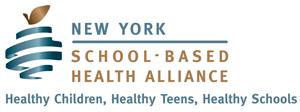After recent massacres at an upstate New York supermarket and a Texas elementary school, advocates worried that people diagnosed with mental illnesses could become scapegoats in the divisive debate over gun control.
Now that Congress has passed the Bipartisan Safer Communities Act, those in the field are welcoming the measure’s focus on, and funding for, mental health programs. But their concerns have not completely evaporated.
The day after the May 24 shooting that left 19 children and two teachers dead at a Uvalde, Texas, elementary school, the National Alliance on Mental Illness (NAMI) released a statement warning about conflating gun violence and mental illness.
“Mental illness is not the problem,” the statement said. “Pointing to mental illness doesn’t get us closer as a nation to solving the problem, and doing so leads to discrimination and stigma against those with mental illness. …”
One month later, President Joe Biden signed the Bipartisan Safer Communities Act into law, saying, “God willing, it’s going to save a lot of lives.”
Gun control groups hailed the law’s provisions, which include: a ban on straw purchases of firearms; enhanced background checks for gun buyers under 21, including a review of juvenile records; and funding for states to implement “red flag” laws to keep guns out of the hands of individuals deemed dangerous to themselves and others.
Still, much of the bill deals with mental health.
There’s funding for mental and behavioral health care training for pediatricians, school-based mental health services, community mental health centers, mental health awareness training and the National Suicide Prevention Lifeline.
Susan Stearns, executive director of the New Hampshire chapter of NAMI, said she welcomes the new funding and focus on mental health. “Overall, it’s heartening,” she said. “I’d like to see more bipartisan action in addressing these issues that affect so many people’s day-to-day lives.”
The new block grants that will come to New Hampshire as a result of the new law are critically needed, Stearns said. “We know we’re facing a mental health crisis, especially around children’s mental health,” she said. “We need more investment across the board in mental health services.”
But she acknowledged that focusing on mental health programs in what was promoted as a gun safety bill risks doing what NAMI warned against. “We need to always avoid conflating gun violence with mental illness,” she said.
Mental illness is not a strong predictor of violence, Stearns said.
“There’s no question that there are individuals who as a result of their mental illness can be violent,” she said. “It’s not exclusionary.”
“That said, statistically you’re more likely to be a victim of violence if you have a mental illness, or another disability for that matter.”
Stearns said she’s pleased to see funding for states to implement “extreme risk protection orders,” known as red flag laws. But she said there has to be a mechanism for people to get their weapons back once they get better.
“People do recover. They get treatment and they recover,” she said. “There should be an opportunity to say, ‘I’m much better now. I just want to go hunting with my uncle.’”
For Stearns, it’s about preventing suicide. “We know that preventing access to lethal means is a really key part of suicide prevention,” she said.
To continue reading, CLICK HERE.
By Shawne K. Wickham New Hampshire Sunday News
Updated
